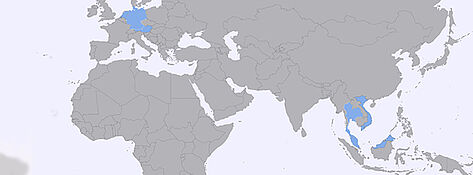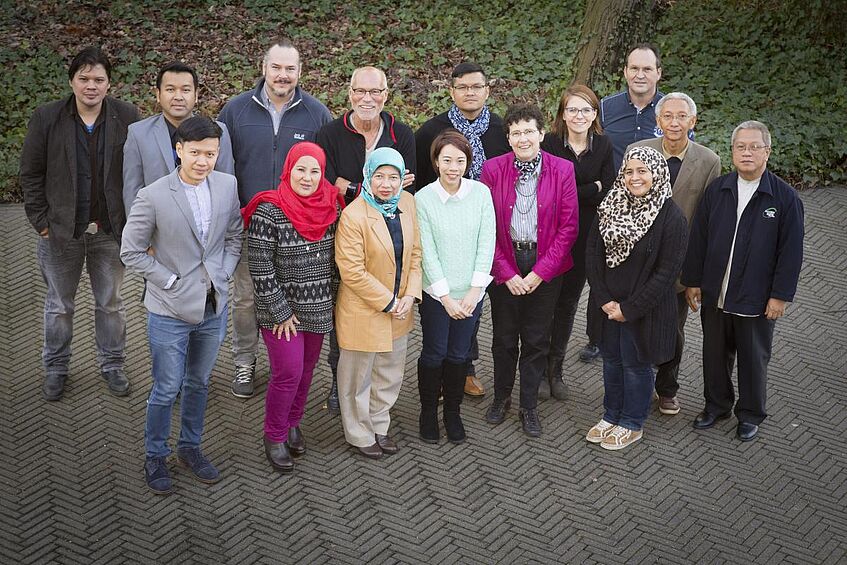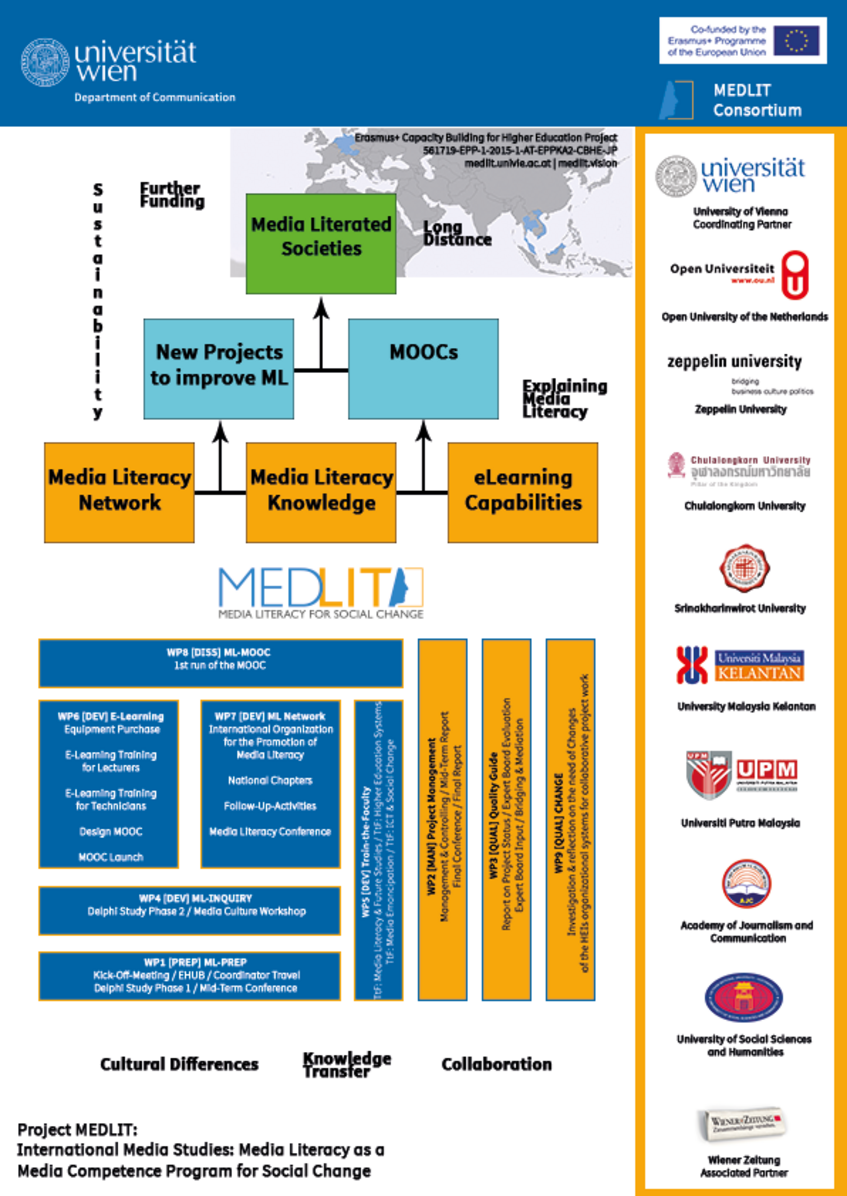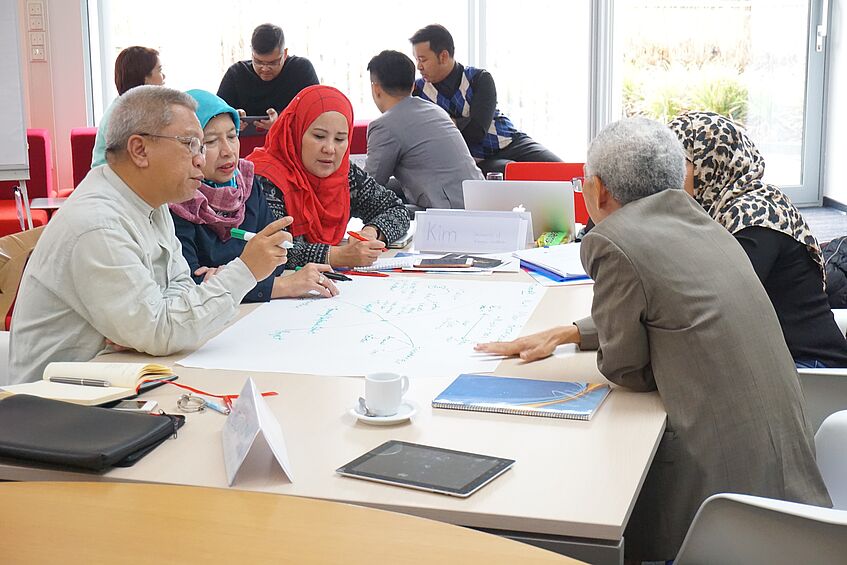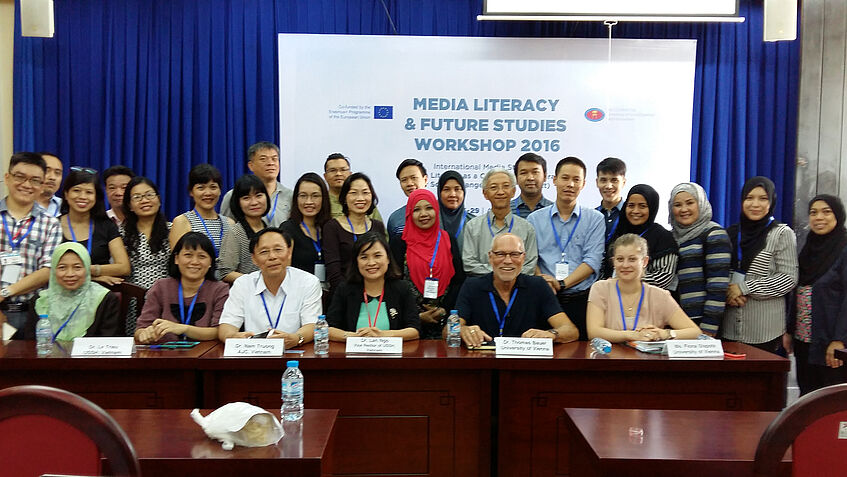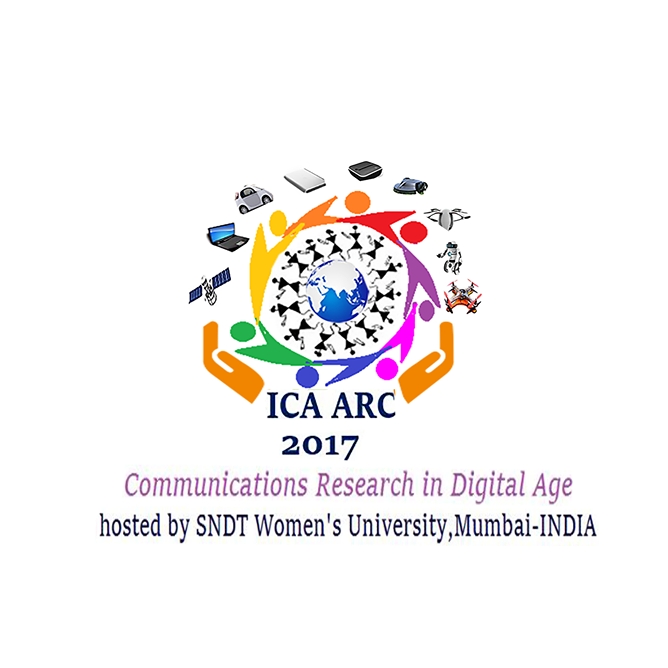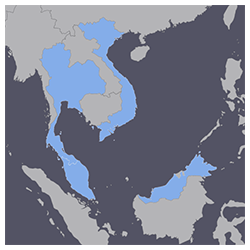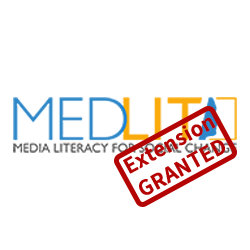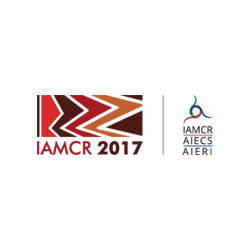The MEDLIT-project was established in Mid-October 2015 by a grant from the EACEA within the framework of the Erasmus+ programme, specifically the KA2 part Capacity-building in the Field of Higher-Education. Activities started in January 2016, shortly after the grant agreement was signed. Because of this delay and other adaptions to reflect changing overall conditions, the project consortium applied for a project extension of five months. The project ended in Mid-March 2018, resulting in 29 months project duration.
Who are we? The project network consists of three European Universities from Austria, Germany, and the Netherlands and altogether six Universities from Malaysia, Thailand, and Vietnam (see the partners section for details).
Why did we do the project? The overall aim of the project was to build the foundation for more media literate societies in South East Asia (beginning with Malaysia, Thailand & Vietnam) in order to cope with the challenges of social change in modern societies. Important drivers for such transformations are media effects on social practice (mediatization and medialization), influencing culture, economics, politics and other societal spheres.
Changing the system: In contrast to many other programs that deal with these phenomena by focusing on digital literacy skills like programming, media production, and education to tackle problems like fake news, filter bubbles & hate speech - this project operated on a more comprehensive level. To use a metaphor: Focussing mainly on skill training is like managing the apps on a smartphone. This may be a quick fix, but it is mostly fighting the symptoms while being limited by the possibilities of the underlying operating system. Instead, the project aimed at a transformation of the operating system itself, by using Higher Education Institutions as places to connect important stakeholders within these societies to think about arising needs as well as societal and cultural goals in the face of global and local developments.
What did we do? To implement this future-studies-guided approach the project defined, planned and realized multiple work packages:
- An Action-Research oriented Delphi Study to do research on the current knowledge and future demands of Media Literacy combined with the attempt to find and activate stakeholders was conducted. This made it possible to incorporate desires and needs of stakeholders beyond the higher education system.
- A series of Train-the-Faculty workshops that presented different perspectives and tools within a diverse theoretical concept of Media Literacy and its educational institutionalization were organized. By educating and training HEI lecturers the project lay the foundations for future impact on media-related courses, curriculums but also for future basic and applied research.
- Additionally, lecturers were trained to plan, develop and test E-Learning materials to put their newly acquired knowledge to use. Part of this training process was to develop MOOCs that address students as well as the general public. While it was originally planned to create one MOOC in multiple languages, it was later decided to launch three different MOOCs, one for each country, as this allowed for greater acceptability and sustainability since the courses could be tailored to the needs of the individual HEIs, allowing also the use as blended-learning materials for the regular curriculum courses. All MOOCs are available via the openlearning.com platform.
- Furthermore, the consortium was extended into a Media Literacy Network (MEDLITnet) that promotes Media Literacy and develop future projects. Partners from Malaysia are leading this network for the next two years. A first conference by the network marked the public launch of the network while also representing the final act of the project.
Growing pains: In retrospect, the project had to overcome several challenges with regard to its organizational demands, especially on the level of cultural specificities and transnational cooperation, especially communication structures and project management skills. This required great efforts from the coordinating institution as well as from the Malaysian partners, who managed to grow into leading roles.

